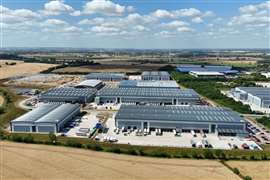Tax issues, vaccine rollouts affecting US construction industry
07 December 2020

As cases of Covid-19 continue spreading and affecting the world economy, the pandemic’s impact on the construction industry and its workers is still evolving.
Earlier this month, Associated General Contractors (AGC) joined a chorus of trade associations in calling for US legislators to correct an IRS policy addressing the tax treatment of loan forgiveness under the Paycheck Protection Program (PPP).
According to the trade associations’ letter, the IRS issued Notice 2020-32, which would transform tax-free loan forgiveness into taxable income. This could incur a tax increase of up to 37% on small businesses when they file their taxes for 2020, the statement said.
In April, Congress passed the PPP as part of the Coronavirus Aid, Relief and Economic Security (CARES) Act in April 2020. According to the U.S. Small Business Association (SBA), small businesses secured federally guaranteed loans to cover eligible payroll costs, payments on business mortgage interest payments, rent, or utilities.
SBA guaranteed approximately US$525 billion in PPP loads to about 5.2 million small businesses across the US.
The AGC said Congress must “address this issue before business owners start getting hit with surprise tax increases, at the same time as many states are issuing orders to shut down or slow down business operations.”
In related news, advances in Covid-19 vaccine production are providing hope for people all over the world, and the good news might continue for workers in the construction industry, as well as other sectors deemed essential.
The Centers for Disease Control and Prevention (CDC) presented a plan this month that would distribute vaccine doses to essential workers as part of Phase 1b, second only to the healthcare professionals and residents of long-term care facilities in Phase 1a.
Although not mentioned by name in Phase 1b by the CDC, construction workers and contractors have been deemed “essential” throughout most of the US during the pandemic.




